Learn how to take care of goats for a beginner homesteader or farmer. Starting with the basics.
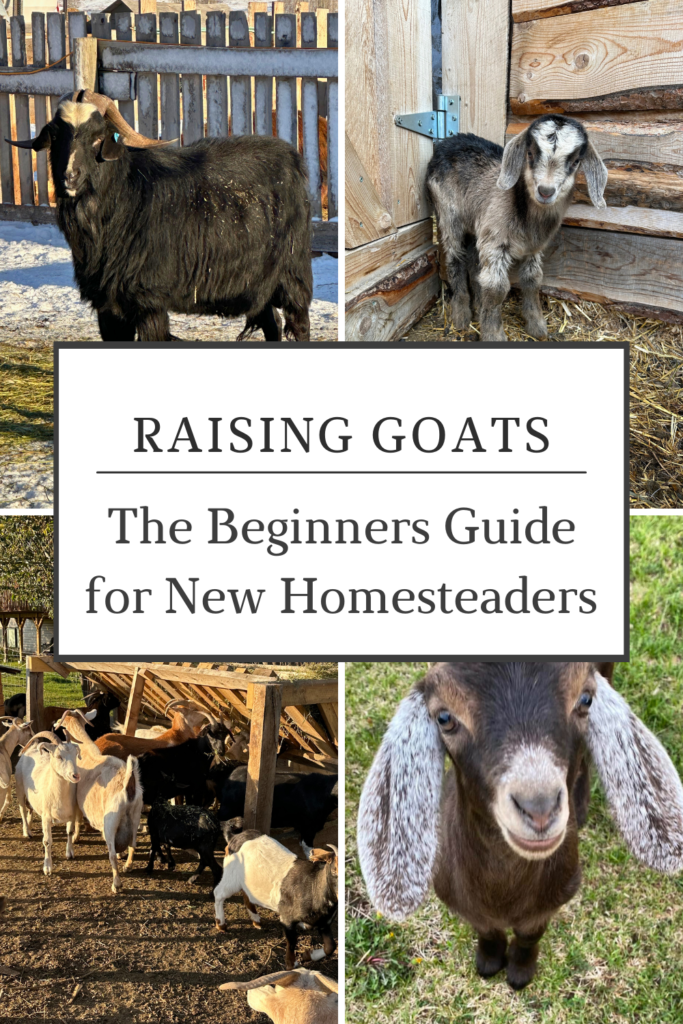
As a new homesteader or farmer, I can guarantee you have heard all the common misconceptions about raising goats.
“They can’t be contained”.
“They eat literally EVERYTHING.”
“Just wait, they are going to jump all over your vehicles.”
“They are the exact same as sheep but without the wool.”
I am using this post to help you decide if goats or right for your homestead or small farm.
Are goats right for your homestead or small farm?
Let’s start with some basics about goats. Goats are incredibly versatile and can be an asset to any homestead/farm. Firstly I always recommend people take time to figure what their goals are. Secondly, to look at the setup they have or what they can invest into infrastructure (fencing, pastures, housing, etc). They don’t require a lot. I do not recommend free ranging them unless your are prepared to lose some bushes, small trees and some of your garden.
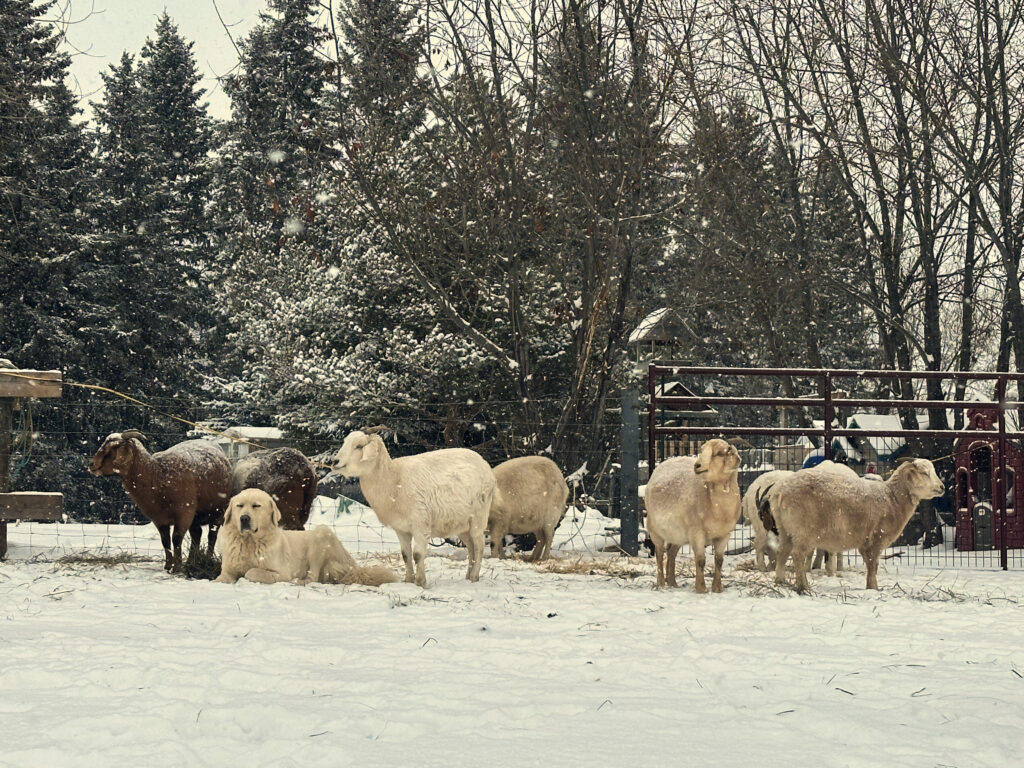
Is my homestead or farm suitable?
You do not need heavily wooded areas We have 3 acres of pasture that was seeded for cattle. Without any trees within the fence lines. We can rotationally graze 15 Kiko X Boer does on there. We make due with what we have and are adaptable.
What kind of fencing is best?
What kind of fencing do you have? When we started, we had a moderate sized barnyard fenced in with some woven page wire which works well. We didn’t have to money to invest in fencing our pastures the first year. So our pastures were strictly a solar fence charger and poly wire that was ran horizontally through plastic step in posts (each horizontal wire was space about 4 inches apart).
I imagine every person that drove by thought we were crazy and assumed our goats got out constantly. We grazed our herd (does and kids) like that for the entire summer and never had anyone escape. We had to make work with what we had and what we could afford at the time. Goats are extremely receptive to electric wire. But we never had them escape our woven page wire either.
What kind of shelter do they need?
Thanks to my husband, our shelters are way more elaborate that what I ever could have imagined (I am very much a function over fashion girl). He built us a 16’x24′ barn on skids. It is NOT insulated and it has a dirt/sand floor. Nevertheless, it cuts out the wind and keeps in rain/snow off their backs. In later posts, I will be digging deep into how to keep them comfortable in the wintertime. Especially in our frigid, northern climate. But having a roof and at least 3 solid walls is a great start.
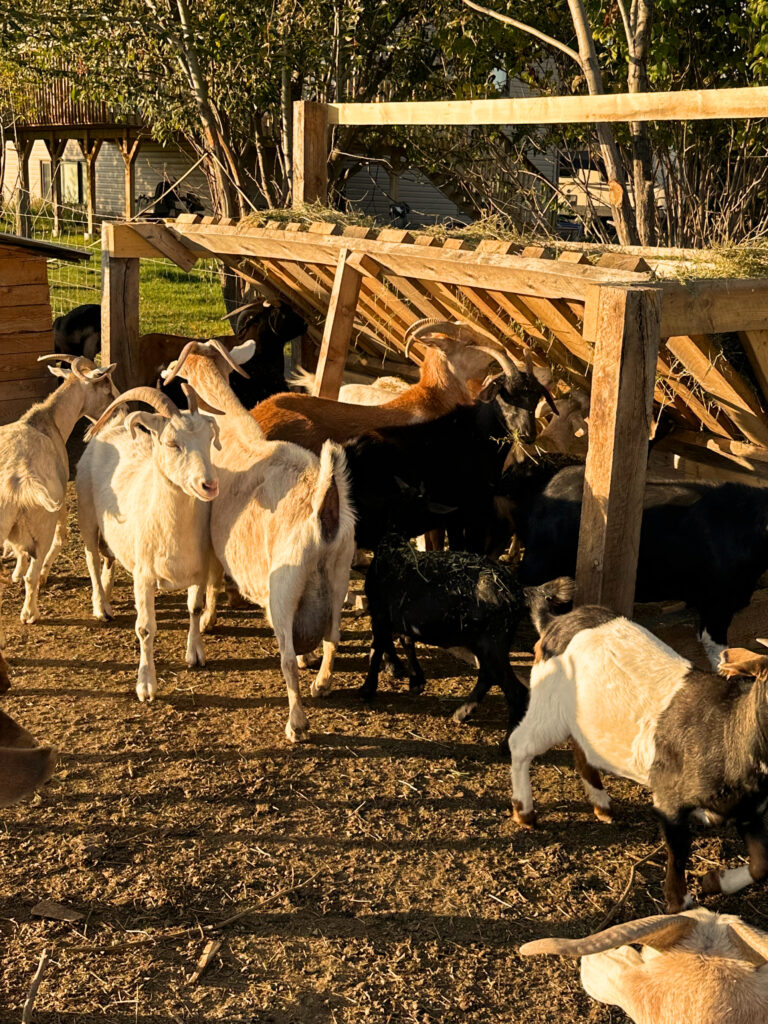
What do goats eat?
Goats are browsers. If given the choice between pastures grasses or bushes, weeds and trees. They will choose the latter first. For example, if you have great pasture grasses but have a section of trees or bushes. They will eat those pretty quickly. Goats will eat the lower branches of your mature coniferous trees and won’t be particularly harmful. But, a small sapling will be eaten down to the root. This makes them great for clearing brush in heavily wooded areas. I have had some peel the bark of my deciduous trees (Mayflower and Willows) and I anticipate to lose those next summer. Keep that in mind for where you are fencing and how you want to manage your trees and bushes.
Feeding them is also pretty simple. Their diet is forage (grass) based because they are ruminants (same as cattle and sheep). They require forages for their digestive system to properly function. In an ideal world, you would feed high quality alfalfa and grass hay. But that may not be readily available where you are. A lower quality hay CAN be supplement with an alfalfa pellet and grain additives. Alfalfa pellets and grain (oats, peas, barley) can all be purchased in bulk from a feed mill or local grain farmer for a very reasonable price.
Like any animal, access to fresh water is important. Especially in extreme weather conditions (cold or hot). Keep your water troughs/buckets as clean as you can (no fecal material and minimal algae).
Do goats need vitamins or minerals?
Mineral is EXTREMELY important for goats. This is where I cannot emphasize enough that they are NOT sheep. When purchasing a mineral for your goat, always get a “loose goat mineral”. A loose mineral is important to ensure your goats can ingest what they need. Their tongues are not abrasive enough to lick a mineral block to all that they require in a short amount of time.
Are goats and sheep the same?
Goats and sheep are similar in a lot of way. But, they are far from the same species.
For examples, goats are browsers and sheep are grazers. Browser prefer to eat above their heads and sheep prefer below their knees. Sheep are fond of grass. And goats love bushes, shrubs and trees.
Goats require copper mineral for their bodies to function. Copper can be fatal to sheep.
Can I raise goats and sheep together?
It is very possible to raise goats and sheep together. It will require more animal husbandry skills that will be beneficial for your homestead. Copper is the trickiest part to manage and will require some animal husbandry skills.
Copper can be purchased in a “copper bolus”. A copper bolus is a bunch of tiny copper rods placed in a capsule that slow release over time that the goats are require to swallow.
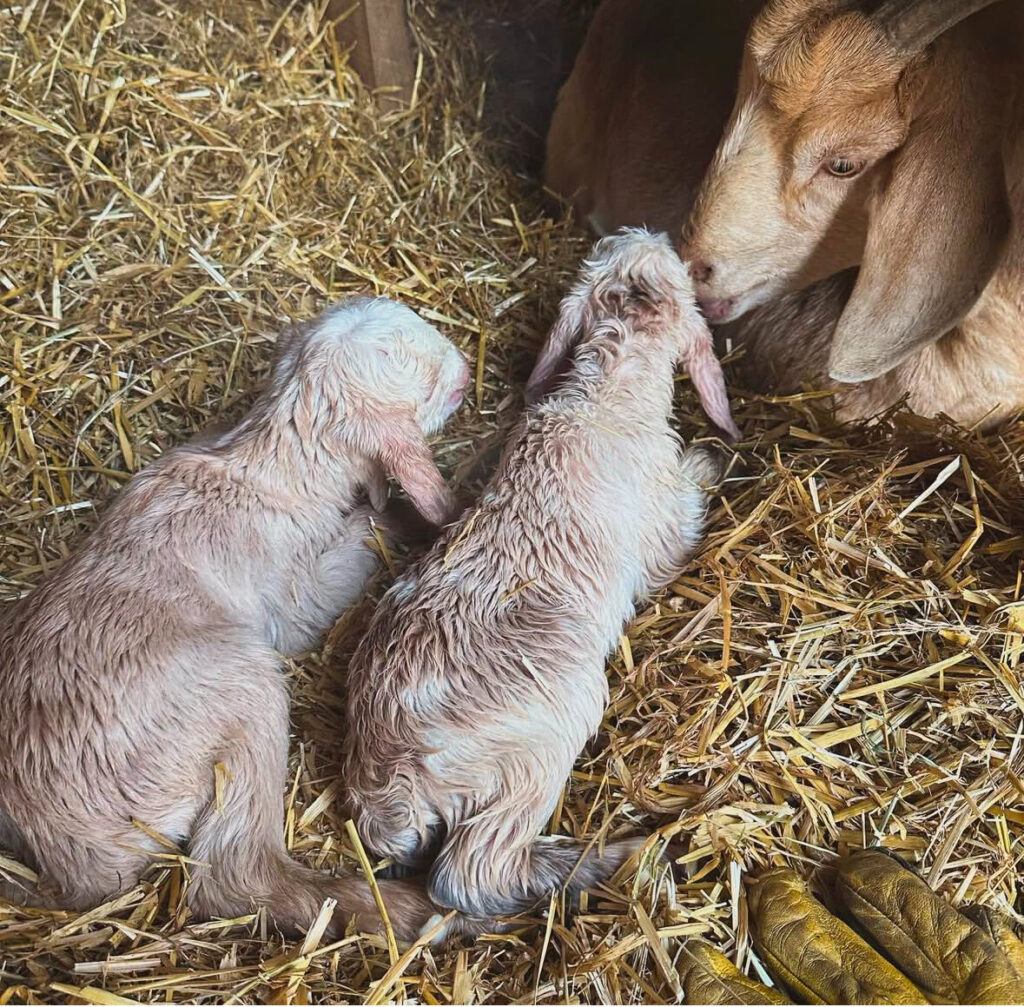
What breeds are best for my homestead or small farm?
Have you thought about what your goals are for goats? Are they pets and companions? Would you like to milk them? Are you looking to get into the meat industry or feed your family? Are you looking for fibre?
I like to separate goats into a few different categories. You have your milk breeds (Nubian, Boar, Alpine, Toggenberg, Saanen, Nigerian Dwarf), your meat breeds (Boer, Kiko, Savannah) and your dual purpose breeds (Kiko, Myotonic, Pygmy). *This is just categorizing the breeds that I frequently see around Alberta, Canada.
Take the time to decide on what your goal is.
Do you like the idea of the meat market? Avoid any miniature or dairy breeds.
Do you want a goat to milk? Bypass the Boer goats.
Do you want small? Kiko, Nubian and Boer won’t fit.
Talk to breeders. Most good breeders want to talk to you. Be transparent about what you know or don’t know. Shop around. As a result, good breeders will help guide you long after that animal leaves their property.
https://www.albertagoats.com/breeds
Where can I buy goats?
Purchasing goats can be an intimidating process. Hence, it will take some time to find a herd that is right for you.
When we first got into goats, our goal was to get into the meat goat industry. We wanted starting working with what we had to get into farming (we have 5 acres).
I scoured online ads for a deal on goats. And we found a “deal” close to home.
We got 7 nanny goats who may or may not have been bred. And an owner couldn’t find the health records for her herd. Now knowing what I know, this was a lot of red flags.
But, you don’t know what you don’t know.
These goats did not save me any money in the long run. I spent a fortune with battling parasites and mineral deficiencies. Out of 7 goats, only 4 were bred. And each of the babies obviously lacked nutrients needed while in the womb.
Fast forward a few years and we recently invested into purchased a registered Kiko herd from a well known Kiko breeder in Canada.
Yes we paid more money, but I feel very comforted in knowing that this breeder knows the ins and outs over every animal she has raised. We received up to date health records, kidding weights, weaning weights, and a list of information of each animal.
Each experience was incredibly different. But looking back now, I wouldn’t change it because we have learned and grown a lot with our goat herd.
How many goats should you get?
Because goats are herd/prey animals. It is always recommended to get a minimum of 2.
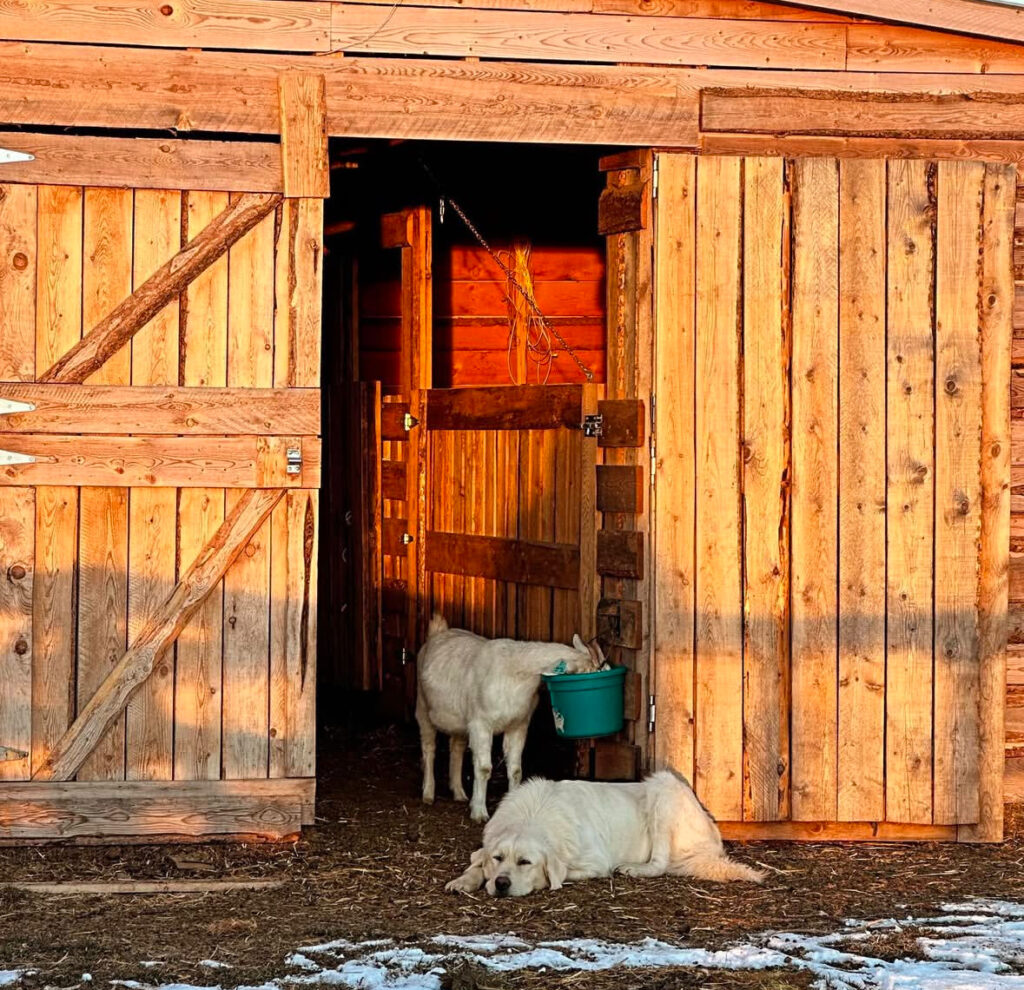
Purchasing from the auction
If you are looking to bypass buying goats privately and going straight to auction. I personally would caution against that.
Goat producers sell goats to the auction (in Canada) for two reasons. They sell meat to the market, and to get rid of unhealthy or problem animals.
When you purchase an animal from the auction, that animal is exposed to every disease(caseous lymphadenitis, commonly known as CL) that has ever gone through there. And those diseases can come back to your property and will live in your soil and wreak havoc on your homestead or farm for years.
Do breeders disease test their goats?
Testing for diseases in goats are readily available in North America. Plenty of breeders/producers test for Johnes and CAE because they arent particularly costly. But testing for CL is less common because of the cost per animal and shipping to the United States. Many herds are managed as a “closed herd”, This means that they do not introduce new animals to their herd which decreases risk of diseases being introduced.

Leave a Reply